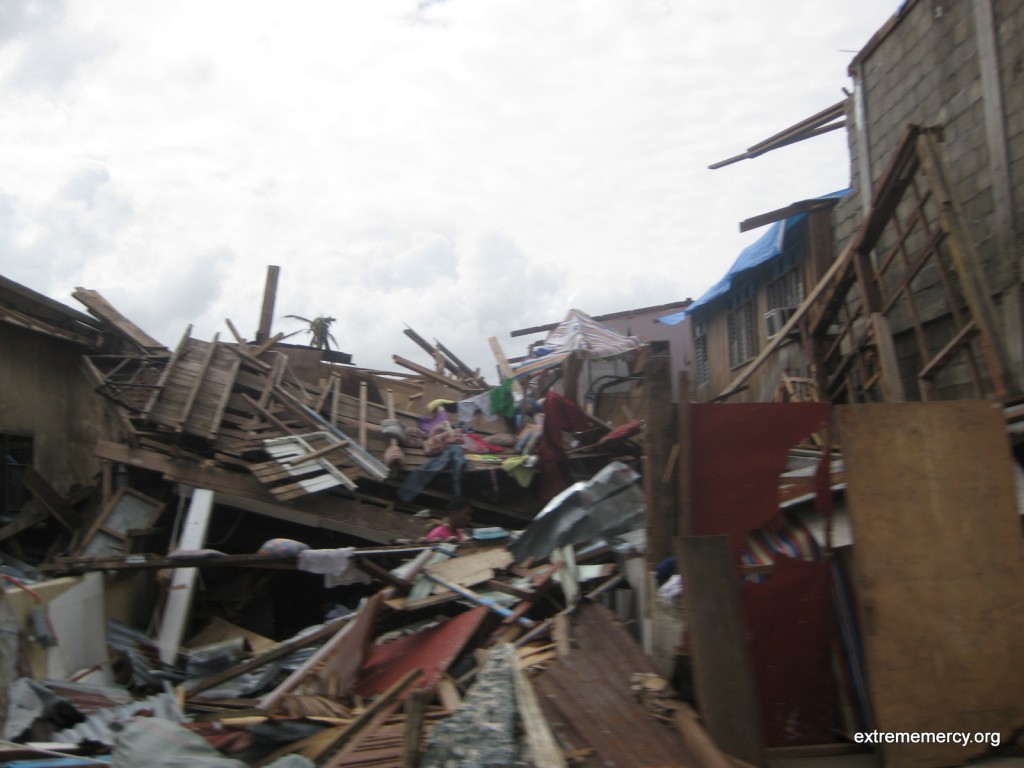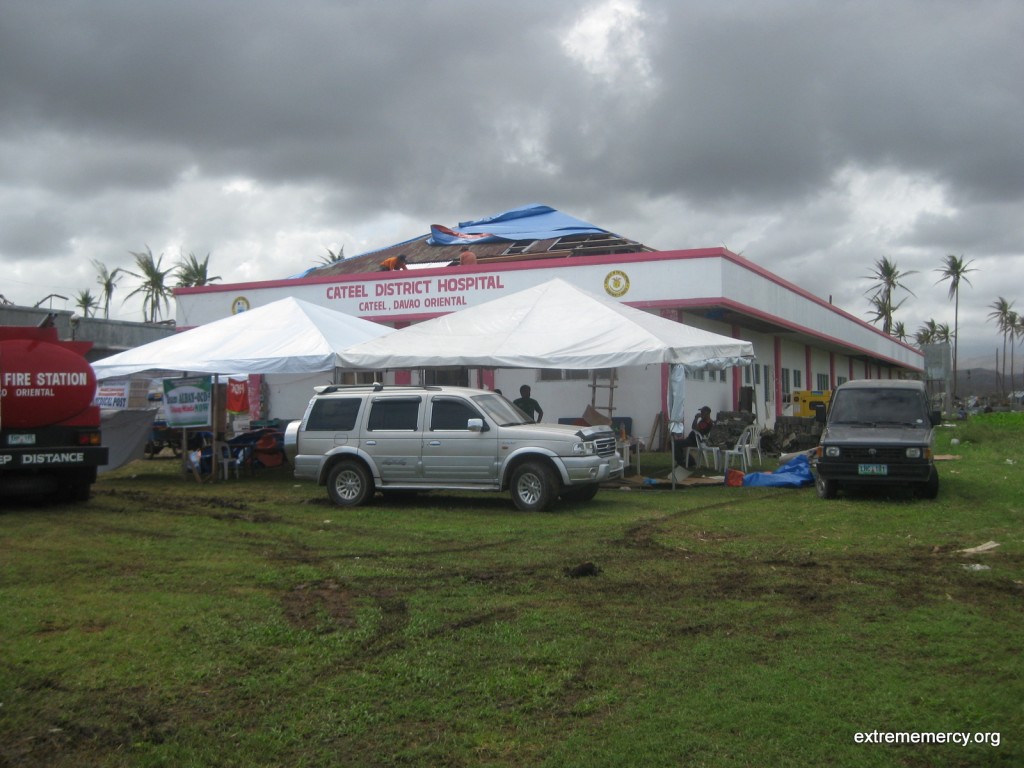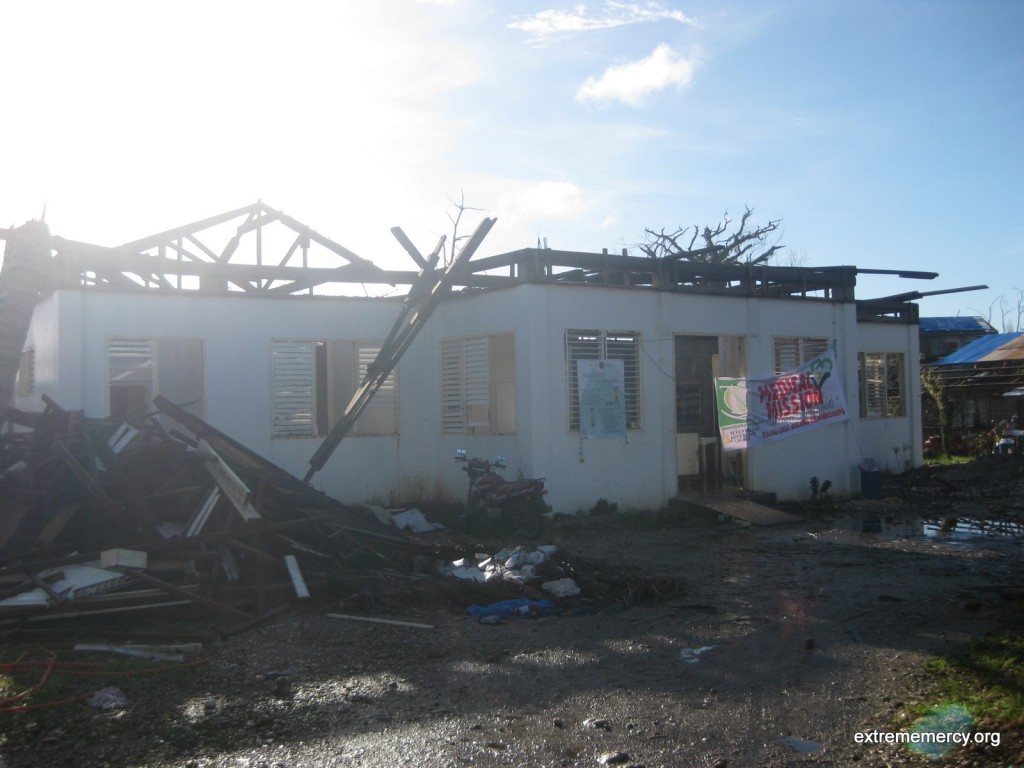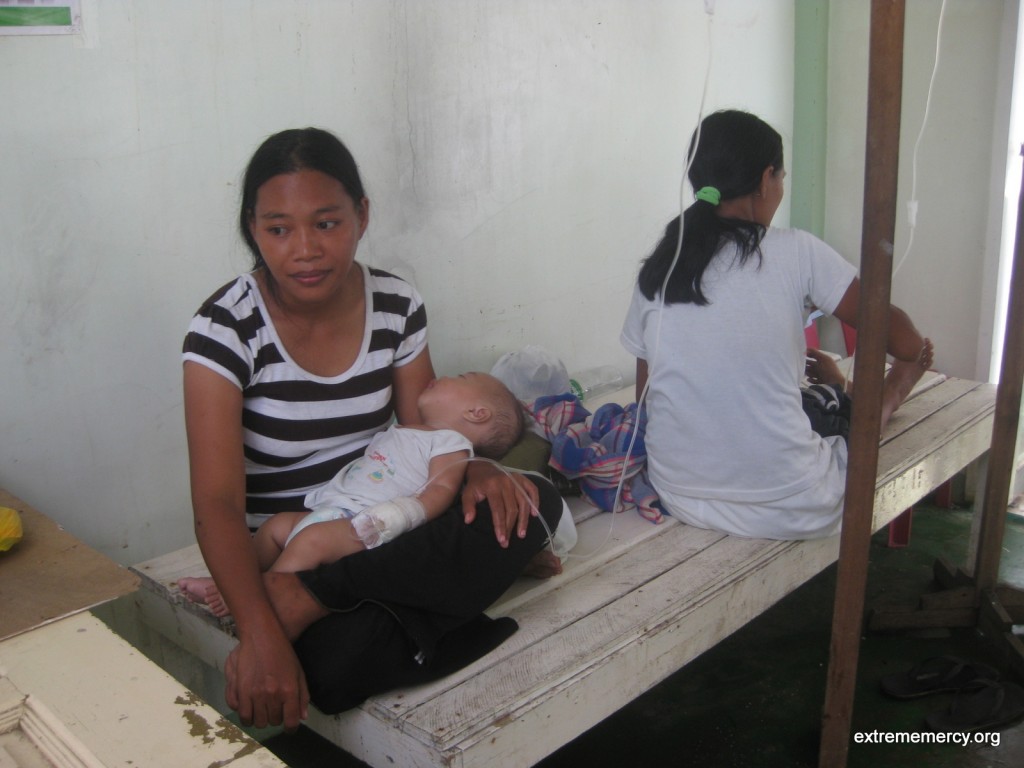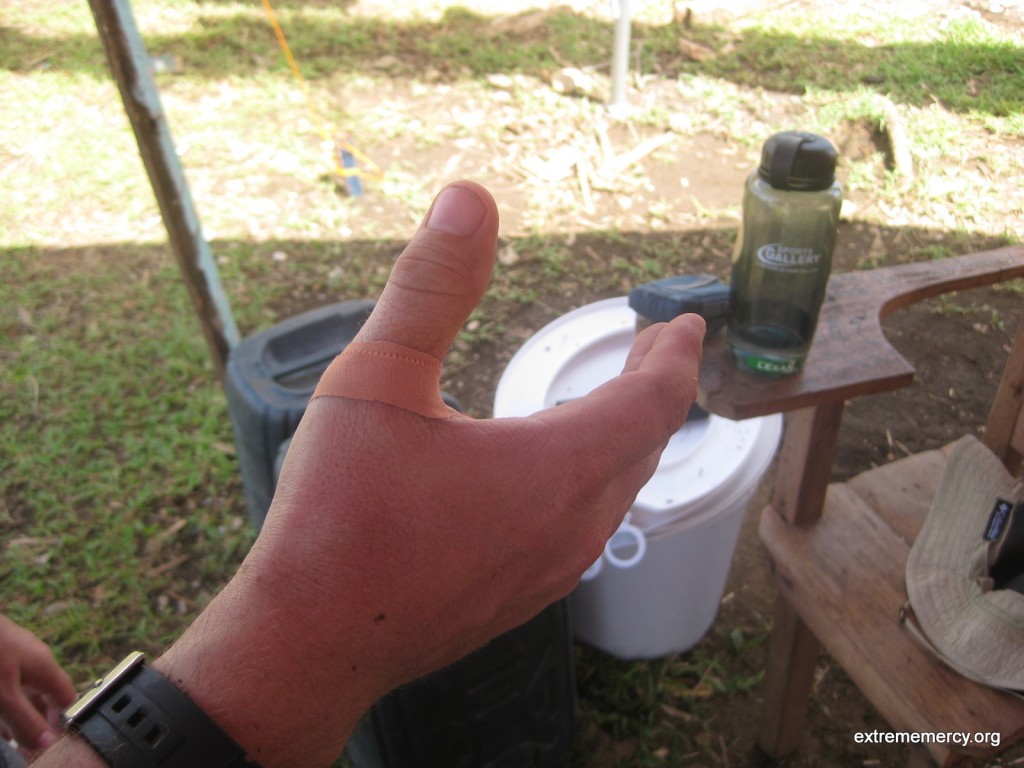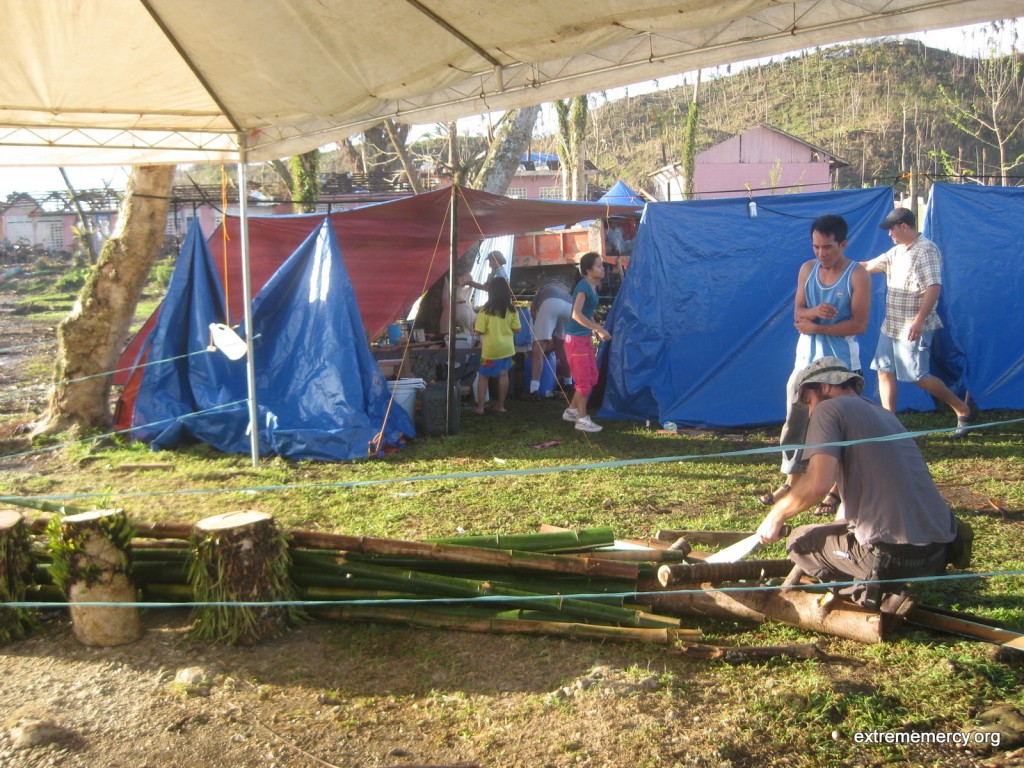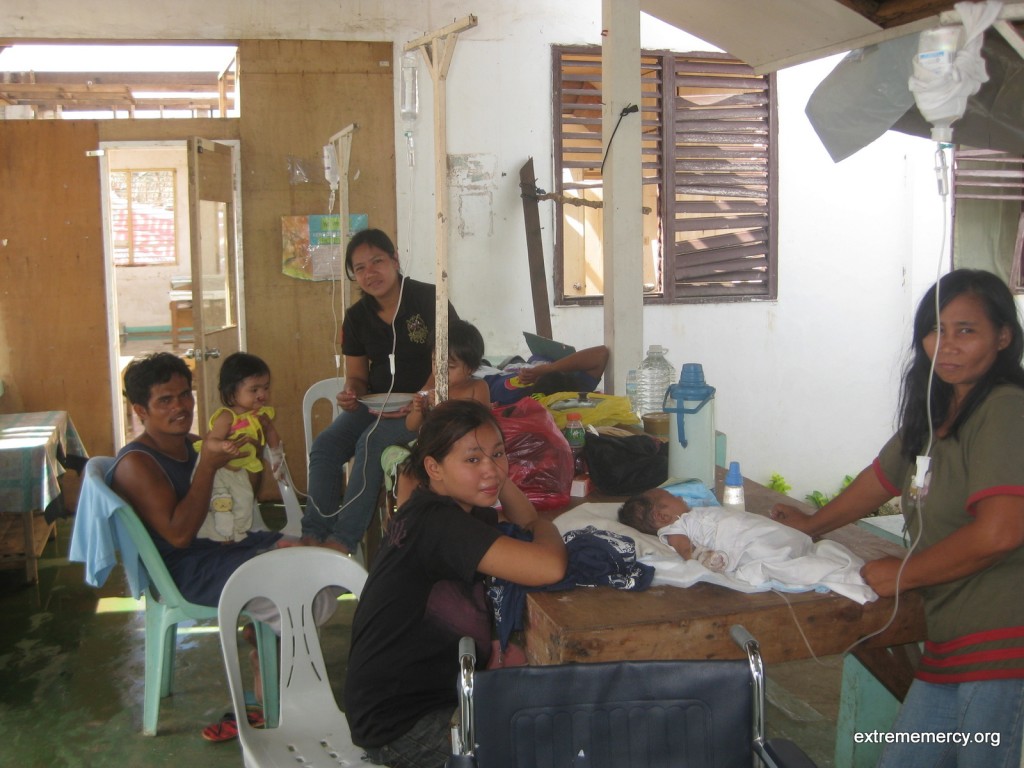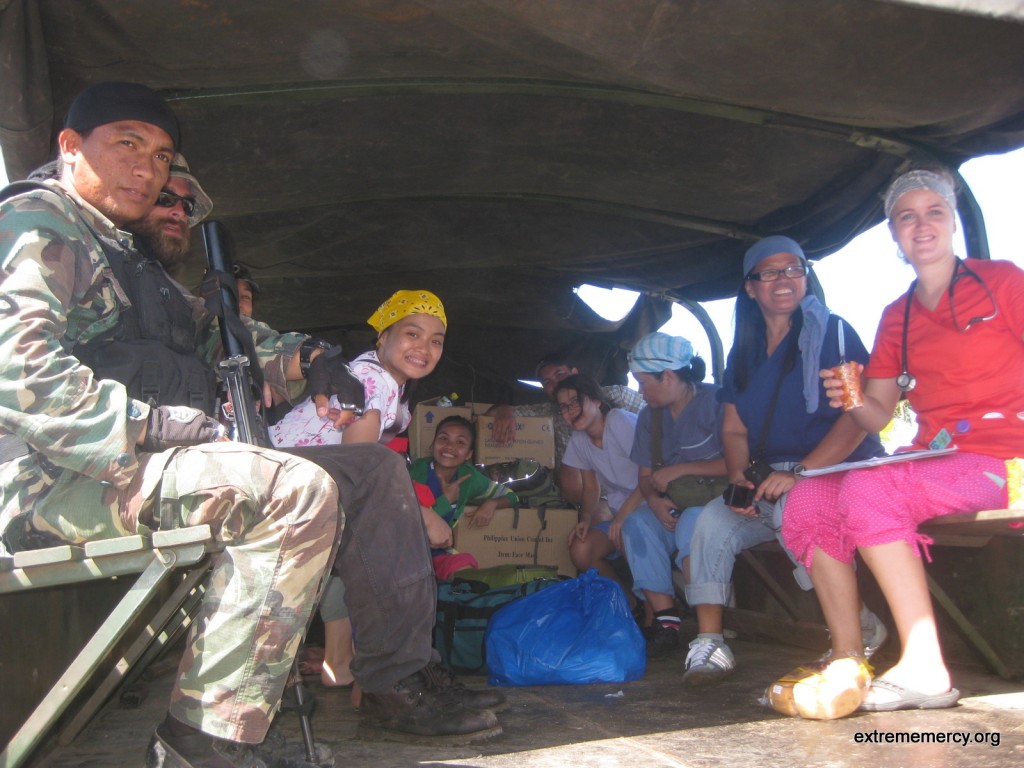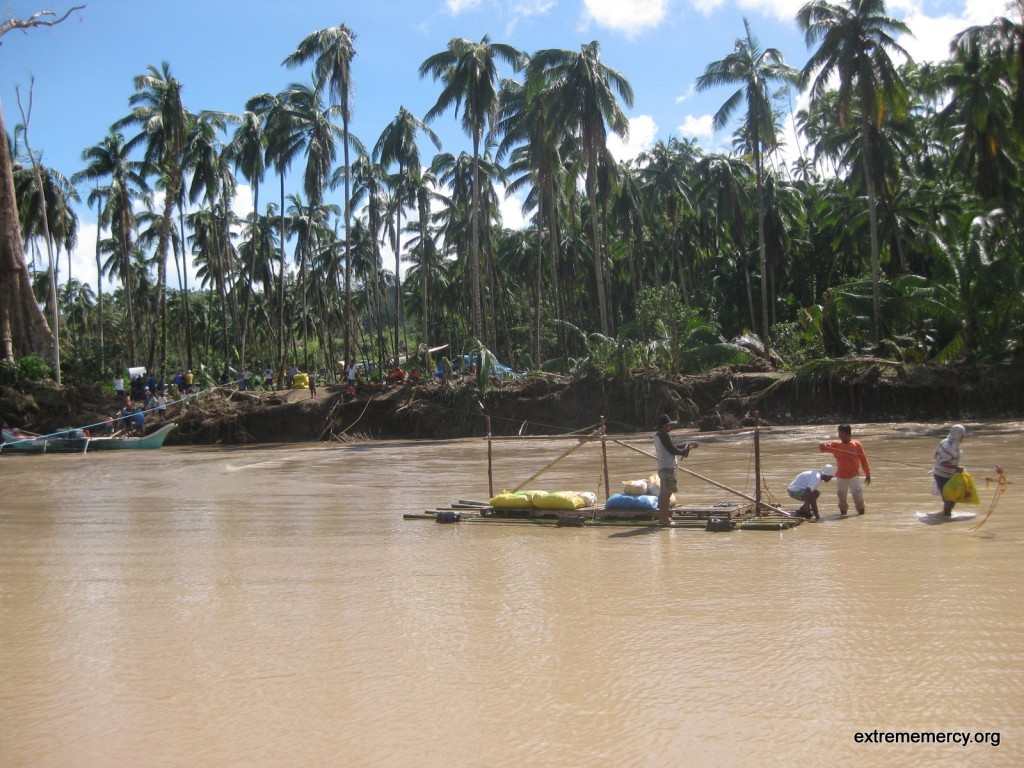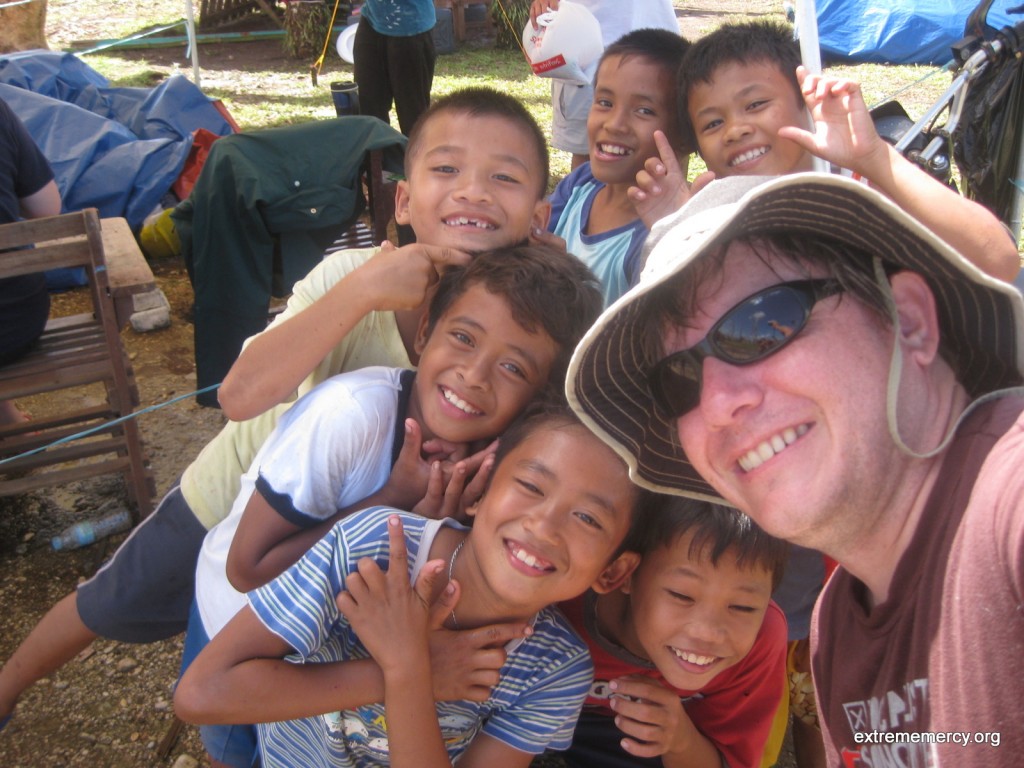What makes a hero?
Many people call going into a disaster zone to rescue people without knowing the risks heroic, but honestly all those who made this possible are heroes. A hero saves lives and by helping our teams go by supporting us financially, you are heroes. Thank you for helping us go.
My first trip to Cateel was almost disheartening because we were the first relief organization to assist the hospital there and the situation seemed hopeless. My second trip to Cateel had much more encouraging results. When we arrived, the hospital had a fully covered tarpaulined roof, a giant generator, and a full volunteer medical staff.
We quickly made the decision to go further south to Baganga (which had a higher death toll than Cateel). Baganga was a very different situation from Cateel. Apparently due to a political situation, the aid agencies that were assisting Baganga had just pulled out and they were abandoned in bad shape.
When we made it to Baganga, the Hospital Clinic was only staffed by about three people including one over exhausted doctor overseeing the whole place. The roof was completely stripped off from the storm and the hospital had no electrical power for 10 days.
Inside, there were about a dozen babies lying throughout the hospital on tables with IVs sticking out of their hands with exasperated parents huddled around them. As a new father, this was unbearable for me to see. I had to fight back tears as we helped light the place with a couple of lights from our generator. Later that evening after we set up camp outside the clinic, I went back in and prayed for all the babies and all the patients in the hospital.
The next day, we rearranged the lighting situation and properly wired the hospital with about eight lights with switches and granted them the full use of our generator. Unfortunately, during the rewiring I was cutting some wires down and slipped with the knife and stabbed myself in my thumb down to the bone. With blood gushing everywhere, I quickly sat down and received first aid from another volunteer. The medical team conveniently arrived within the hour and they patched me up as best they could.
It was a bad start to the trip and made my right hand useless for a few days. I had the last opportunity for days to head home right after that, but instead decided to stay. By evening, we had covered the roof of the hospital with giant tarpaulins. Thankfully, we covered the roof because it rained very hard that night and we got soaked in our campsite. Actually, it rained hard every night. We were pretty much soaked in our camp just outside the hospital the whole time each and every night.
As I checked the hospital after the lights were installed and the roof was covered, I noticed that only two of the babies I prayed for stayed there that night. No one from the medical staff had released the other babies, but the parents took them out of there on their own accord. I didn’t hear any reports, but I can only hope that they were healed after I prayed for them and they didn’t need hospitalization any more.
The next few days, the medical team went out with the Philippine Army to remote communities to treat wounded people. They were treating about 70 to 100 people per day with some serious untreated wounds from the storm.
One man had his ear cut off during the storm and needed emergency transportation to get help. We used our private team vehicle (a very simple SUV) as an ambulance for these cases. One of the worst cases was a man who stepped on two rusty nails in the debris and his untreated foot was terribly infected. Our team took him to a better medical facility where he likely had to have his foot amputated. We provided emergency medical transportation at all hours of day and night up until a few hours before I left. The last night I was there, I heard about 3am, “The baby’s not breathing! We need to transport it to Cateel.” It’s about a 40 minute drive to Cateel hospital, but unlike the Baganga clinic, they had oxygen there, so our camp woke up to facilitate the transport. Thankfully, we got the baby to Cateel in time to stabilize its breathing along with some other patients that needed better care. I am certain that these “ambulance” trips saved many lives during our time there.
With a mix of natural help and spiritual help, we were able to save lives and change lives. As a team, we kept our camp running for two weeks straight with teams rotating in and out for 4 to 5 day rotations. We even had a team stay over Christmas sacrificing time away families to help people in need.
This effort was made up of many ministries and agencies working together in unity to make a difference. Extreme Mercy International teamed up with Global Impact Foundation, Stitch of Truth Gear, First Responders International, and Mercy Maternity Clinic.
What is next?
During the course of our interactions with the locals and hearing their stories, we came across a heartbreaking story. Our team met a pastor whose wife was killed in the storm. This family lost everything and are still holding services in a roofless church and ministering to people in need when they need ministry themselves.
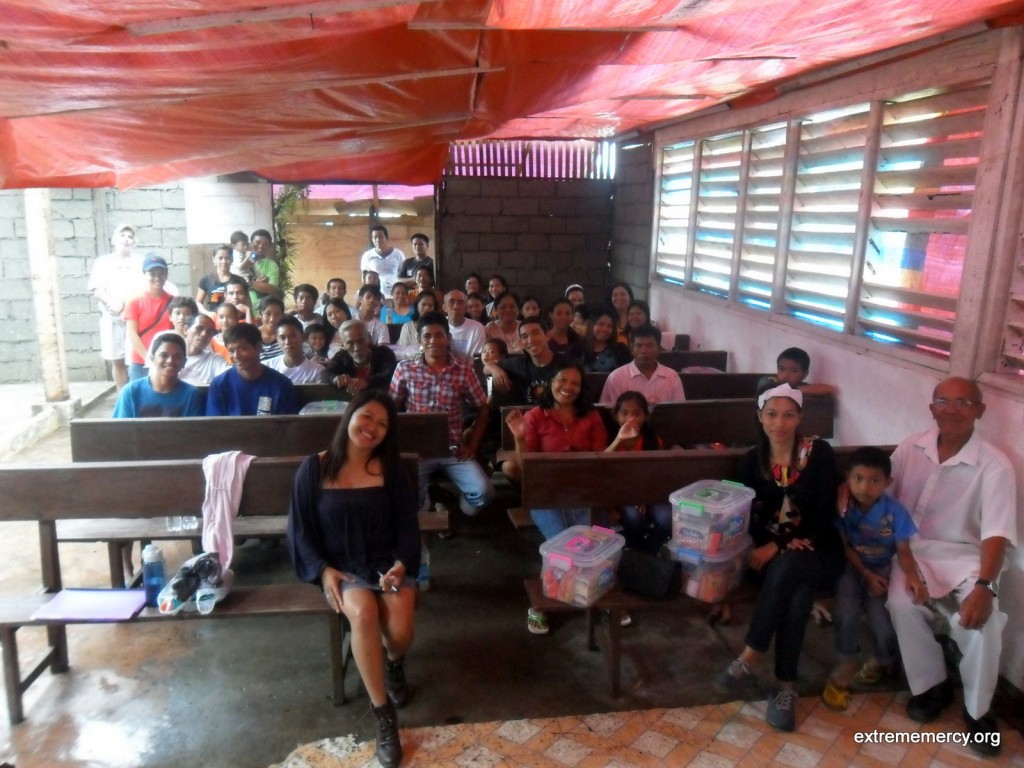
The pastor (far right) lost his wife in the storm. We are going to roof this church. Will you help us?
We have decided to take on the project of roofing this church. It will cost us about 2,000 US dollars to buy the materials. Our team and the church will do the volunteer labor. This roof will span the church and parsonage and keep this grieving family dry and provide shelter for their services. It will also serve a dual purpose as headquarters and a superior shelter for our teams when we stay in Baganga. Even though the rescue stage is over, we intend to help these communities recover. We intend to keep going back and helping these people as long as we can.
Will you please donate to help put a roof on this church?
If you would like to support us through the mail, please send your checks, cashier’s checks, or money orders to:
Extreme Mercy International P.O. Box 72266 Phoenix, Arizona 85050 U.S.A.We are also looking for a good vehicle with good clearance to make the rough road 700km (435 miles) round trip to Baganga and back. The vehicles we have been looking at will cost anywhere from 5,000 to 7,500 US dollars and will be used for recovery efforts now and rescue teams in the future.
Will you please consider starting out the new year as a hero by helping us change lives?
